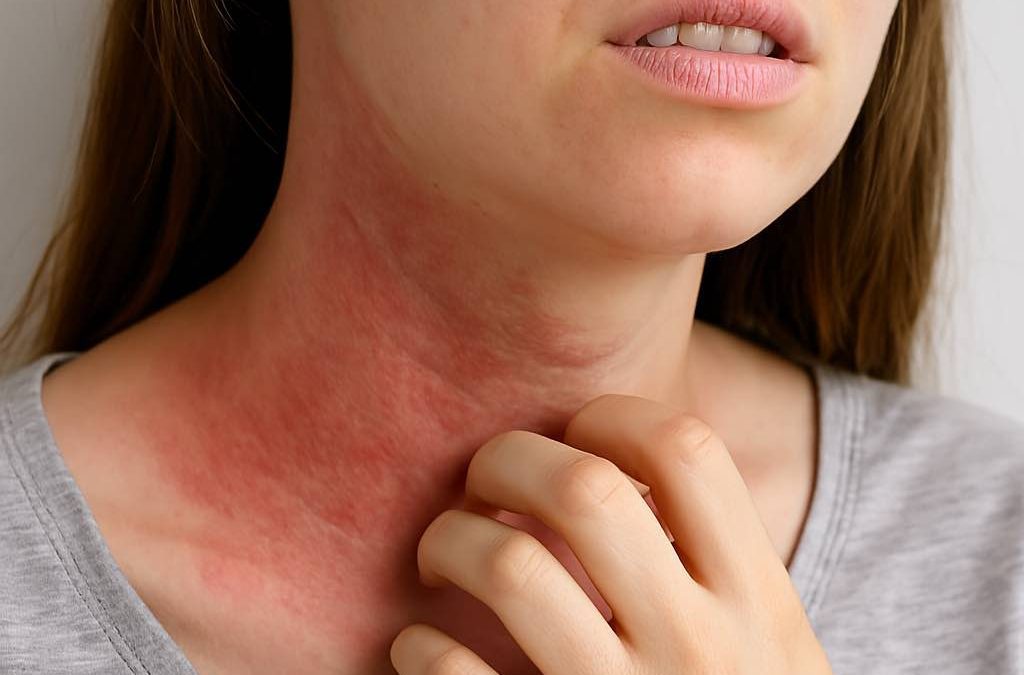The Impact of Untreated Atopic Dermatitis on Daily Life
Atopic Dermatitis (AD), often referred to as eczema, is more than just dry or itchy skin—it’s a chronic, inflammatory condition that can deeply impact a person’s quality of life. For millions of individuals, especially children and young adults, living with untreated Atopic Dermatitis means coping with persistent symptoms that can interfere with sleep, self-esteem, and everyday routines.
Despite being common, the full impact of untreated Atopic Dermatitis is often underestimated. Here’s a closer look at how this condition affects daily life—and why seeking effective treatment (including participation in clinical research) is so important.
What Is Atopic Dermatitis?
Atopic Dermatitis is a chronic skin disorder characterized by redness, inflammation, itching, and dryness. It can appear anywhere on the body and often worsens in cycles, known as flare-ups. The exact cause is not fully understood, but it’s believed to result from a combination of genetic, environmental, and immune system factors.
When left untreated, AD can become more than a skin issue—it can disrupt multiple aspects of physical and emotional health.
The Daily Challenges of Untreated Atopic Dermatitis
-
Sleep Disruption
The intense itching associated with AD can be relentless, especially at night. Many patients report frequent waking, difficulty falling asleep, and poor overall sleep quality. Over time, this can lead to chronic fatigue, decreased focus, and reduced performance at work or school. -
Physical Discomfort and Pain
In addition to itching, untreated AD can lead to cracked, bleeding skin, stinging, and even infection. Clothing, sweat, and temperature changes may aggravate symptoms, making basic activities like showering, exercising, or dressing uncomfortable. -
Emotional and Mental Health Effects
The visible nature of Atopic Dermatitis can cause embarrassment, low self-esteem, and anxiety, especially in social or professional situations. Children and teens with untreated AD may face bullying or feel isolated, while adults often report feelings of frustration, depression, or hopelessness. -
Financial Burden
Though untreated, many individuals try over-the-counter solutions or frequent urgent care visits during severe flare-ups. The cost of missed workdays, topical creams, doctor visits, and alternative treatments adds up quickly—creating a hidden financial burden for many families. -
Interference With Daily Routines
Flare-ups can impact everything from getting dressed to participating in outdoor activities. Some individuals avoid swimming, sports, or even hugging loved ones due to skin discomfort. These limitations can have a cumulative impact on confidence and social life.
Why Research and Treatment Matter
Untreated Atopic Dermatitis is not only painful but progressive—it can worsen over time or lead to complications like infections or skin thickening (lichenification). That’s why early diagnosis and consistent treatment are critical.
At Elite Clinical Studies, we’re working to advance care through clinical research. By participating in a clinical trial for Atopic Dermatitis, individuals may gain access to innovative treatments not yet available to the public. These studies aim to improve outcomes and reduce the burden this condition places on daily life.
How You Can Help—And Get Help
If you or someone you love is living with Atopic Dermatitis, especially if it’s untreated or poorly managed, you don’t have to suffer in silence. Clinical research offers hope—and you can be part of the solution.
Qualified volunteers may be compensated for time and travel during participation in our Atopic Dermatitis study.
Location:
Elite Clinical Studies
4520 E. Indian School Road
Phoenix, AZ 85018
Call Us Today: 602-788-3437
Volunteer Here: www.eliteclinicalstudies.com/atopic-dermatitis-clinical-study/
Final Thoughts
Living with untreated Atopic Dermatitis can affect every part of your life—from your sleep and self-image to your mental health. Fortunately, research is moving forward. With your help, we can find better answers, faster.
Have questions about joining a study? Give us a call—we’re here to help.

